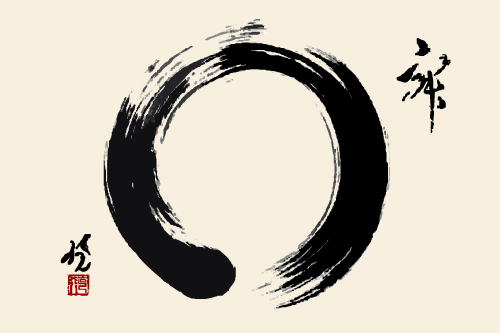

“Zen Buddhism does a lousy public relations job,” Shinzen Young, an eminent American teacher of Buddhism, joked at a meditation retreat I once attended. Take its first tenet, that suffering is everywhere. Is there anyone among us who likes to be reminded of this truth that we cannot—but would like to—deny? And who in their right mind would be drawn to another central theme in Zen Buddhism, namely, that the center of our lives—the self as we know it—is both an illusion and insubstantial, literally a fictitious construction, a delusion, or mirage?
In focusing on suffering and selflessness, I have witnessed many Buddhists neglect certain vital aspects of what it means to be a full human being. This full humanity is one of the themes of Robert Aitken’s classic, Taking the Path of Zen, a clear and inspiring manual for practicing Zen Buddhism. An early and important American Zen teacher, Aitken, who spent many years in rigorous training with Buddhist masters in Japan, presents a nondogmatic account of Zen, illuminating zazen or meditation, correct breathing and posture, as well as Buddhist ethics and precepts such as “take up the way of not killing,” “take up the way of not misusing sex,” and “take up the way of not using drink or drugs.” The tone throughout Taking the Path of Zen is openhanded, an invitation from Aitken: Try these techniques and see for yourself if they work.
“Zen is not a goal; it is the road one travels. A way that is direct and yet elusive—hearing what you are listening to, seeing what you are looking at, tasting what you are chewing—cultivating awareness of and intimacy with our lives.” In addition, he pinpoints common spiritual pitfalls and answers questions that plague Western students. For example, spiritual practitioners all too often get sidetracked by seeking the extraordinary, or getting liberated from suffering, or achieving rarefied states of consciousness like (perhaps) nirvana. The focus of one’s practice then may subtly become feeling better or special, which inadvertently can reinforce the very self-absorption that Zen critiques and is supposedly a remedy for.
 Zen is not a goal; it is the road one travels. A way that is direct and yet elusive—hearing what you are listening to, seeing what you are looking at, tasting what you are chewing—cultivating awareness of and intimacy with our lives.
Zen is not a goal; it is the road one travels. A way that is direct and yet elusive—hearing what you are listening to, seeing what you are looking at, tasting what you are chewing—cultivating awareness of and intimacy with our lives.
Taking the Path of Zen is a lucid and substantive book that will enlighten both beginners and experienced meditators. It not only paints a compelling picture of authentic Zen, it helps us live with newfound clarity and delight, awe and integrity.
“Students of contemplative disciplines: Don’t shortchange yourself by pursuing your practice simply to feel good or get away from what bothers you. Take the risk and work on your character. The results will not only change your life but enrich the people you come in contact with at home, at work, and simply moving through the world.” Taking the Path of Zen contains a quote from one of Aitken’s teachers, Yamada Roshi: “The purpose of Zen is the perfection of character.” From my experience with Zen, this means learning to live more unself-consciously and intimately, ethically, and sanely. Greeting the moment wholeheartedly and responding to the hand we are dealt with as much grace and dignity as we can muster, in our families, at work, and in our relationships with others. This embodies the cultivation of character. I’ve always believed that people of character have integrity and live with wisdom. They induce safety and trust in those who know them and are a beacon for their family, friends, and colleagues—an extraordinary virtue in an age where morality and accountability are often sorely lacking.
Students of contemplative disciplines: Don’t shortchange yourself by pursuing your practice simply to feel good or get away from what bothers you. Take the risk and work on your character. The results will not only change your life but enrich the people you come in contact with at home, at work, and simply moving through the world.
Read about Jeffrey B. Rubin, Ph.D.



